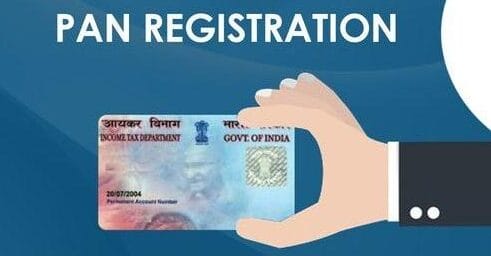Transfer pricing consultancy in India involves specialized advisory services aimed at helping multinational enterprises (MNEs) comply with transfer pricing regulations and optimize their global tax positions. Here’s an overview of transfer pricing consultancy specific to India:
Services Offered by Transfer Pricing Consultants in India
1. Transfer Pricing Planning and Strategy
- Advising on structuring inter-company transactions to comply with Indian transfer pricing regulations and international standards.
- Developing transfer pricing policies aligned with business objectives while minimizing risks of tax adjustments.
2. Transfer Pricing Documentation
- Preparation of comprehensive transfer pricing documentation files, including master file, local file, and country-specific documentation requirements.
- Conducting benchmarking studies and economic analyses to support transfer pricing policies.
3. Transfer Pricing Compliance
- Assisting in compliance with annual transfer pricing compliance requirements, including filing of Form 3CEB and other disclosures as per Indian Income Tax Act provisions.
- Reviewing inter-company agreements and transactions to ensure consistency with transfer pricing policies.
4. Transfer Pricing Audits and Dispute Resolution
- Representing clients in transfer pricing audits conducted by Indian tax authorities (Transfer Pricing Officer).
- Assisting in preparing responses to transfer pricing audit queries and defending transfer pricing methodologies during dispute resolution proceedings.
5. Advance Pricing Agreements (APAs)
- Assisting in preparing and negotiating unilateral, bilateral, or multilateral APAs with Indian tax authorities to obtain certainty on transfer pricing methods for future transactions.
- Providing ongoing compliance support for APA terms and conditions.
6. Business Restructuring and Transfer Pricing
- Advising on transfer pricing implications of business restructurings, including mergers, acquisitions, divestitures, and reorganizations.
- Conducting transfer pricing due diligence and risk assessments for restructuring transactions.
7. Global Transfer Pricing Coordination
- Coordinating transfer pricing policies and compliance across multiple jurisdictions for Indian-based MNEs with global operations.
- Providing guidance on aligning global transfer pricing strategies with Indian tax laws and international best practices.
Importance of Transfer Pricing Consultancy in India
- Compliance Assurance: Ensures compliance with Indian transfer pricing regulations to mitigate risks of penalties, adjustments, and disputes with tax authorities.
- Optimization of Tax Positions: Helps MNEs optimize tax efficiency by applying appropriate transfer pricing methodologies and ensuring arm’s length pricing of intra-group transactions.
- Risk Management: Identifies and manages transfer pricing risks associated with cross-border transactions and business operations in India.
- Strategic Decision-Making: Supports strategic business decisions by providing insights into transfer pricing implications for global expansions, investments, and restructurings.
Transfer pricing consultancy in India is critical for MNEs to navigate complex transfer pricing rules, ensure compliance with Indian tax laws, and optimize their global tax positions. Engaging with experienced transfer pricing consultants who understand both Indian regulatory requirements and international transfer pricing principles can help businesses effectively manage transfer pricing risks and enhance overall tax efficiency.
At Ujjwal Gupta & Co
We, at Ujjwal Gupta & Co, are dedicated to delivering personalized, high-quality solutions tailored to meet your financial and business needs. With our team of professionals and a client-first approach, we ensure that every challenge is met with expert guidance and strategic insight.
We are dedicated to ensuring your business’s success by providing best service practice available in the industry and that too at a cost effective pricing. Our team of experts is excited to work with you and provide the support you need to thrive in the Indian business landscape.
Our only motive is to create Value for Our Clients and accordingly, have a Client Value System at our Office.
So, let us help you navigate the complexities of finance and compliance, empowering you to focus on what matters most — growing your business. Get in touch today, and take the first step towards financial peace of mind.
Transfer pricing refers to the pricing of goods, services, and intangible assets transferred between related parties or associated enterprises, typically within a multinational group. These transactions must adhere to the arm’s length principle, which ensures that prices are set as if the transactions occurred between unrelated parties.
Transfer pricing is crucial because it prevents profit shifting and tax evasion by ensuring that multinational companies report a fair and correct allocation of profits in each country where they operate. India’s transfer pricing regulations are designed to ensure that tax revenue is not eroded by manipulative pricing between related entities.
The arm’s length principle is a standard used in transfer pricing to ensure that transactions between related parties (such as parent companies and subsidiaries) are priced the same way as they would be between unrelated third parties in a comparable situation. It ensures that no undue advantage is taken from the relationship to reduce tax liabilities.
Any international transactions or specified domestic transactions between associated enterprises (related parties) are subject to transfer pricing regulations. These transactions include:
- Sale and purchase of goods
- Provision of services
- Royalties and intellectual property licensing
- Interest payments
- Intercompany loans and guarantees
For international transactions, there is no threshold limit, and all such transactions between related parties are subject to transfer pricing compliance. For specified domestic transactions, companies must comply with transfer pricing regulations if their aggregate value of such transactions exceeds ₹20 crore during the financial year.
Indian transfer pricing regulations mandate the maintenance of the following documentation:
- Master File: Provides information on the global operations of the multinational group.
- Local File: Contains detailed information on the taxpayer’s local entity and its related-party transactions.
- Country-by-Country (CbC) Report: For multinational groups with consolidated revenue exceeding ₹5,500 crore, the CbC report provides an overview of the group’s global income, taxes paid, and key economic activities in each jurisdiction.
Penalties for non-compliance with transfer pricing regulations in India include:
- 2% of the value of international transactions for failure to maintain proper documentation.
- 2% of the value of transactions for failure to furnish the required transfer pricing documentation.
- 3% of the value of transactions for underreporting or misreporting of related-party transactions.
- ₹500,000 for failure to furnish the Master File or CbC Report.
The arm’s length price is determined by applying one of the following methods prescribed under the Income Tax Act:
- Comparable Uncontrolled Price (CUP) method
- Resale Price Method (RPM)
- Cost Plus Method (CPM)
- Profit Split Method (PSM)
- Transactional Net Margin Method (TNMM)
- Other method as prescribed by the Central Board of Direct Taxes (CBDT), which provides a more accurate measure.
A transfer pricing consultant assists in:
- Preparing robust transfer pricing documentation to justify the arm’s length nature of transactions.
- Defending clients during tax audits by providing detailed explanations and support for intercompany transactions.
- Assisting in resolving transfer pricing disputes through negotiations with tax authorities or through the Dispute Resolution Panel (DRP), Advance Pricing Agreements (APA), or litigation in courts.
An Advance Pricing Agreement (APA) is an agreement between the taxpayer and the tax authorities to predetermine the arm’s length price for future related-party transactions. This helps eliminate uncertainties and avoid future transfer pricing disputes. APAs can be unilateral (with Indian tax authorities), bilateral, or multilateral (involving two or more countries).
Why Choose UGC?

Client Centric Approach
Client is the key driver of our service offerings. Our approach to service offerings is based on a client centric and customized approach. Our specialized teams are a mix of technical and industry experience in order to serve clientele for their specific needs.

Team Work
We have built high performing teams supported by strong work ethic. Our team is a mix of experts, professionals and support staff from technical and varied academic, social and ethnic backgrounds. We believe diversification plays a vital role in motivating the team.

Quick Turnaround
We always endeavour for a quick turnaround time to serve our clientele. We are supported by an experienced and client focussed support teams to offer timely services to our clientele. In case of any business exigencies and time sensitive service requirements, you can always count on us.

Open Communications
We believe that open communication is the core principle in order to demonstrate trust, build long lasting and valuable relationships with clientele. We are committed to ensuring transparency in communication, service offerings and delivery. We provide professional services to our clients.

Client Value System
We value for the Client time and thus, we offer services that are value for money. Quality professional services are provided to our clients, so that they are able to achieve their desired results. We are a quality trademark in the industry and thus, our clients count on us always.

Quality in Delivering Work
Our service offerings are driven by quality and reviews at every level. We strive to provide a qualitative and value-added delivery to our clientele. At all times, we endeavour to provide exceptional client service by meeting client expectations and driving client satisfaction.


















